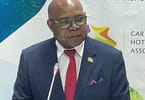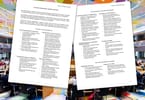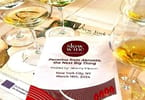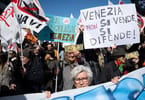Members of the Association of Southeast Asian Nations (ASEAN) are enduring strategic partners as we respond to the COVID-19 pandemic and plan for economic recovery. We commit to continue our collaboration with ASEAN to beat this pandemic and get back to the business of building a bright future for the region together.
We thank our ASEAN partners for their valuable support in promoting the continued flow of vital medical supplies into the United States, as well as their support for our repatriation flights. For example, Vietnam expedited clearances for charter flights to deliver 2.2 million personal protective suits to the United States, and we expect more shipments of personal protective equipment (PPE) in the coming weeks. Additionally, since the beginning of April, Malaysia facilitated the speedy delivery of over 1.3 million kilograms of gloves for U.S. health care workers. Cambodia helped Americans safely return home from the Westerdam cruise ship.
The United States continues to provide generous support to ASEAN nations to assist them to respond to the COVID-19 pandemic. We urge all countries to embrace full and transparent information sharing. Transparency saves lives; suppression puts them at risk. During this meeting, I was pleased to announce the U.S.-ASEAN Health Futures initiative to enhance our efforts in health security through research, public health, and training the next generation of ASEAN health professionals. To date, the United States has released more than $35.3 million in emergency health funding to help ASEAN countries fight the virus, building on the $3.5 billion in public health assistance provided across ASEAN over the last twenty years.
We also urge authorities to take appropriate measures to facilitate the delivery of humanitarian aid and services to the most vulnerable populations across the Indo-Pacific—including those displaced by violence inside Myanmar. We call for all to work with the United Nations and humanitarian organizations to make that happen for Rohingya and other displaced persons.
The United States is committed to using all available tools to minimize the economic and social damage from the pandemic and restore global growth. We start from a strong foundation with $294 billion in two-way goods trade in 2019 and $273 billion of U.S. Foreign Direct Investment across ASEAN countries. The Development Finance Corporation is investing in infrastructure projects across the region. The USAID-supported ASEAN Single Window is facilitating greater and greater contactless trade throughout ASEAN. The U.S.-ASEAN Internship Program continues to expand with openings at many of our biggest companies in the region. The U.S.-ASEAN Smart Cities Partnership promotes U.S. private sector engagement in smart city solutions and the digital economy. We remain committed to sustaining our long-term investments in economic technical assistance and human capacity development through our bilateral USAID programs in the ASEAN member states of Cambodia, Indonesia, LAO PDR, Myanmar, the Philippines, Thailand, and Vietnam.
Given the strong link between illegal wildlife sold in wet markets and zoonotic diseases, the United States has called on the People’s Republic of China to permanently close its wildlife wet markets and all markets that sell illegal wildlife. I call on all ASEAN governments to do the same.
Even as we fight the outbreak, we must remember that the long-term threats to our shared security have not disappeared. In fact, they’ve become more prominent. Beijing has moved to take advantage of the distraction, from China’s new unilateral announcement of administrative districts over disputed islands and maritime areas in the South China Sea, its sinking of a Vietnamese fishing vessel earlier this month, and its “research stations” on Fiery Cross Reef and Subi Reef. The PRC continues to deploy maritime militia around the Spratly Islands and most recently, the PRC has dispatched a flotilla that included an energy survey vessel for the sole purpose of intimidating other claimants from engaging in offshore hydrocarbon development. It is important to highlight how the Chinese Communist Party (CCP) is exploiting the world’s focus on the COVID-19 crisis by continuing its provocative behavior. The CCP is exerting military pressure and coercing its neighbors in the SCS, even going so far as to sink a Vietnamese fishing vessel. The U.S. strongly opposes China’s bullying and we hope other nations will hold them to account too.
We expressed concerns over a scientific report showing that Beijing’s upstream dam operations have unilaterally altered flows of the Mekong. The report found that such operations significantly deprived the Mekong countries of water for years, with catastrophic results during the most recent dry season for the 60 million people who depend on the river for food, energy, and transportation.
The story of the ties between the billion people of America and ASEAN is an inspiring, positive one. We have faced shared challenges before. Together, we’ve made our people safer and more prosperous. We commit to continue to build for the future based upon the tried and true principles that we share – ASEAN centrality, openness, transparency, a rules-based framework, good governance, and respect for sovereignty.
IHE Ị GA-Ewepụ na edemede a:
- Beijing has moved to take advantage of the distraction, from China's new unilateral announcement of administrative districts over disputed islands and maritime areas in the South China Sea, its sinking of a Vietnamese fishing vessel earlier this month, and its “research stations” on Fiery Cross Reef and Subi Reef.
- The PRC continues to deploy maritime militia around the Spratly Islands and most recently, the PRC has dispatched a flotilla that included an energy survey vessel for the sole purpose of intimidating other claimants from engaging in offshore hydrocarbon development.
- We commit to continue our collaboration with ASEAN to beat this pandemic and get back to the business of building a bright future for the region together.






















